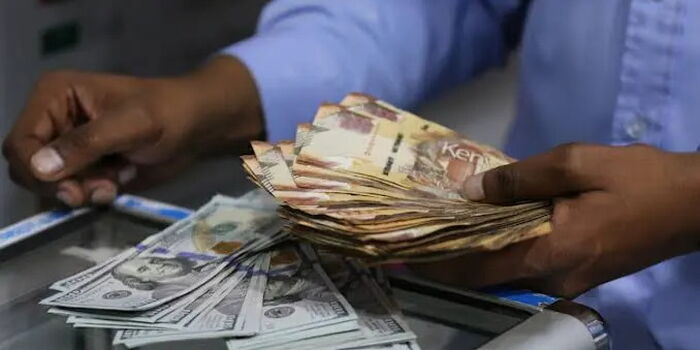The US dollar has hit its lowest point in three years, raising new concerns about the cost of goods and overall global economic stability.
Investor confidence in the US currency, which is usually viewed as a safe option during financial uncertainty, dropped significantly on Monday.
This came as trading resumed after the long Easter weekend, and a fresh wave of dollar sell-offs began.
According to the Bloomberg Dollar Spot Index, the dollar dropped by up to 1% on Monday, showing how much trust in the greenback has declined.
This marked the weakest level for the dollar since March 2022 and triggered new fears that a global economic downturn might be around the corner.
The dollar’s decline follows the return of Donald Trump to the White House in January. The situation worsened after Trump repeated his threat to fire US Federal Reserve Chairman Jerome Powell.
While most economic experts and scholars believe it’s unlikely that Trump can actually remove Powell, his persistent remarks have made investors uneasy.
In a post on Truth Social, Trump insulted Powell by calling him “Mr Too Late” and “a major loser,” which only deepened market uncertainty.
As the dollar weakens, other global currencies are gaining strength. The Japanese yen rose to its strongest level since September, and the euro surged to a level not seen in over three years.
These shifts suggest a big change in global currency markets, especially for countries like Kenya that rely on international trade.
When Kenya’s financial markets reopened on Tuesday after the Easter break, investors were met with a dramatically changed landscape.
They now face tough choices on whether to hold onto their US dollar reserves or switch to the Kenyan shilling, especially with forecasts suggesting the dollar could drop further, potentially falling to between Ksh135 and Ksh150 by the end of 2025.
These projections depend heavily on future decisions by the US Federal Reserve and the demand for imports globally.
Even though many experts agree it would be hard for Trump to legally remove Powell from office, that hasn’t stopped traders from dumping the dollar.
Helen Given, a foreign exchange trader at Monex, told Bloomberg that if the US enters a recession and the central bank cannot operate independently, the economic damage could be even worse, making investors more nervous.
Krishna Guha, vice chairman at financial advisory firm Evercore ISI, told CNBC that the markets are reacting strongly to every signal Trump sends.
He explained that just the suggestion of Trump trying to interfere with the independence of the Federal Reserve has rattled investors. “There’s clearly a growing concern about the direction of US economic policy,” Guha said.
In Kenya, the shilling has stayed below Ksh130 against the dollar for over eight months now, but its performance could be affected by these global shifts.
At the same time, analysts are also watching the cost of fuel imports closely, as oil prices tend to be influenced by changes in the strength of the US dollar.
A weaker dollar could push import prices higher, which might lead to more inflationary pressure in countries like Kenya.
All eyes will now be on how the US government and Federal Reserve respond to these developments, as well as on how global markets adjust in the coming months.
Join Our Political Forum official 2025 WhatsApp Channel To Stay Updated On time https://whatsapp.com/channel/0029VaWT5gSGufImU8R0DO30


